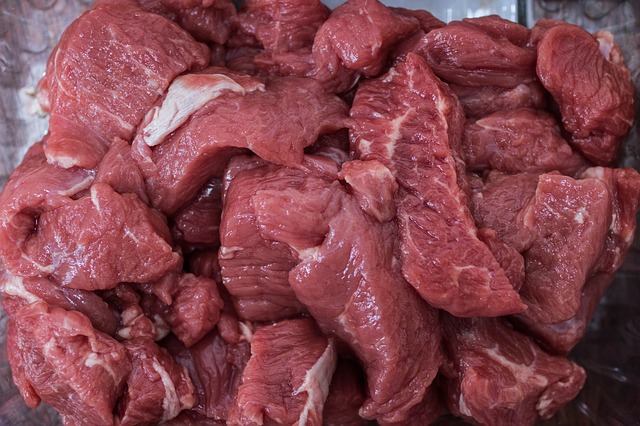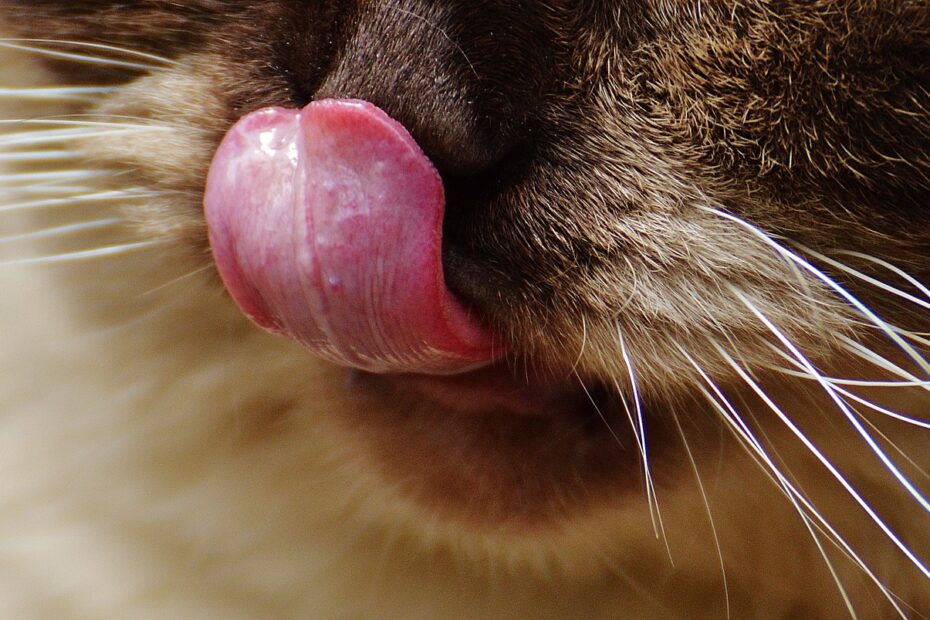If you’ve ever wondered can British Shorthair cats eat raw food? you’re not alone. Many pet owners are curious about the benefits and risks of feeding their cats a diet of raw, uncooked meats and vegetables.
While there is no one-size-fits-all answer to this question, there are some things you should consider before making the switch to a raw food diet for your British Shorthair cat.
In this post, we’ll discuss the pros and cons of feeding British Shorthair cats a raw food diet, as well as some tips on how to make the transition if you decide that a raw food diet is right for your feline friend.
British Shorthair History
British Shorthair cats are a breed of domestic cat that has been popular in the United Kingdom for centuries.
These cats are known for their short, dense coats of fur and their sweet, calm temperaments.
What Do British Shorthair Cats Eat In The Wild
In the wild, British Shorthairs would eat a diet of small prey animals, such as rodents or birds.
However, because most pet owners don’t live in the countryside where there are plenty of small animals to hunt, most British Shorthairs are fed a diet of commercial cat food.
Can British Shorthairs Eat Raw Food?
British Shorthairs can eat raw food as long as they are getting adequate nutrition from a raw food diet. A raw food diet for a British Shorthair should consist of 90% meat and a variety of vegetables for vitamin intake. Owners can also add supplements to their diet to make sure their cat is getting the nutrients they need.
Many people believe that processed cat foods are not as healthy as raw food diets and that they can lead to health problems like obesity and diabetes.
Some pet owners choose to feed their cats a raw food diet as a way to improve their pet’s health.
It’s important to understand the dietary requirements for these big cats. Let’s take a look at what they require from their food.
Dietary Requirments For British Shorthairs
The dietary requirements of British Shorthair cats are mainly based on their need for protein.
Cats are obligate carnivores, which means that they require animal-based protein to survive.
They also require a high level of taurine, an essential amino acid that is not found in plant proteins.
This is why it is important for cat owners to make sure their cats are eating a diet that is rich in animal proteins.
Vitamins and minerals are also important for cats. Cats require a high level of vitamin A, which is found in the liver and other animal organs.
They also require B vitamins, including thiamine (vitamin B1) and niacin (vitamin B3), as well as calcium and phosphorus for healthy bones and teeth.
Pros Of A Raw Food Diet
There are many benefits of a raw food diet for cats. One of the biggest benefits is that it is more digestible than cooked food, so it can help to prevent gastrointestinal problems.
Raw food also contains more nutrients than cooked food, so it can help to keep cats healthy and energetic.
Additionally, raw food is less processed than cooked food, so it contains more of the natural enzymes and vitamins that are essential for cats.
Many cat owners report that it also leads to a healthier coat and healthier skin in cats.
Oh, and did we mention that cats poo less and the poop even smells better!
Cons Of A Raw Food Diet
- Cats may not get all the nutrients they need from a raw food diet.
- Risk of bacteria and pathogens.
- Some cats may not like the taste of raw meat.
- A raw food diet can be expensive.
Things To Consider Before Switching To Raw Food
There are a few things to consider before switching your British Shorthair cat to a raw food diet.
First, you’ll need to make sure that your cat has access to plenty of clean water at all times, as they will need to drink more when eating a raw food diet.
You’ll also need to make sure that your cat gets enough protein and other essential nutrients.
While all breeds of cats can benefit from a raw food diet, British Shorthairs may require slightly more protein than other breeds.
If you decide to feed your British Shorthair a raw food diet, it’s important to do so gradually, over the course of several weeks.
Start by mixing a small amount of raw food into your cat’s regular diet, and gradually increase the amount of raw food until they are eating a purely raw diet.

Precautions When Serving Raw Food To British Shorthair
There are a few things you can do to make sure that your British Shorthair stays healthy on a raw food diet.
First, make sure to feed them a variety of different meats and vegetables to ensure that they’re getting all the nutrients they need.
You should also avoid feeding them small chicken bones, as these can splinter and cause choking or other digestive problems.
If you have any concerns about switching your cat to a raw food diet, be sure to talk to your veterinarian first.
Common Myths Of A Raw Food Diet For Pets
There are a few myths about raw food diets for cats that people still believe today.
One common myth is that feeding your cat a raw food diet will cause them to become obese.
While it’s true that you should be careful not to overfeed your cat on a raw food diet, it’s important to remember that most processed cat foods are also high in calories.
Another common myth is that all raw food diets are unbalanced and unhealthy.
This is not always the case – there are many balanced and healthy raw food diets available for cats.
Finally, some people believe that switching your cat to a raw food diet is too difficult or complicated.
However, with a little bit of planning and preparation, switching your cat to a raw food diet can be easy and hassle-free.
What’s The Best Food For A British Shorthair Cat?
There are numerous high-quality food brands for your Puss and Boots. However, there are few we always recommend.
- Instinct Cat Food. They do an entire range of raw cat food which would be perfect for owners that are looking to transition their British Shorthair onto a raw food diet.
- Blue Buffalo is another great brand. Their Blue Wilderness range is great for high-protein diets.
- Wellness offers an entire range of wet and dry food as well as snacks and treats.
Good Raw Food Recipe For A British Shorthair
There are many good recipes for raw food for British Shorthair cats. Some raw meats that are very popular with cats are:
- Chicken livers and hearts
- Chicken thighs
- Turkey thighs
- Rabbit/ duck
- Sardines(preferably once per week).
You will also most likely need a range of supplements to make sure your cat is getting the correct nutrients from each meal.
Common supplements to add to a raw food cat diet are taurine, fish oils, vitamin B complex, vitamin E, Iodized Salt.
Most recipes include grinding the meat while keeping the skin and fat on as much as possible.
It’s important to keep the fat on the meat because it gives your cat something to tear into which is great for keeping their teeth healthy and strong.
It’s best to keep only big bones on the meat and remove all the small ones as they may be a choking hazard.
Keeping the bones in the meat keeps the calcium to phosphorus ratio correct.
If you are looking for a more detailed recipe check out Feline Nutrition.
Can I Give A British Shorthair Kitten Raw Food?’
It’s probably best not to give a kitten any raw foods. If you’re going to feed a kitten raw meat, make sure it’s human-grade raw meat.
In order to avoid any possible growth deficiencies, it’s best not to give a British Shorthair kitten raw food until they are at least 20 weeks old.
Conclusion
If you’re looking for a raw food diet for your British Shorthair, there are many different types of recipes that may work well.
You can find some good recipes on Feline Nutrition. It’s important to remember that all cats will not benefit from the same type of diet.
It is highly recommended to consult with your vet before switching your British Shorthair onto a raw food diet and making sure they have enough protein in their meals while also maintaining proper calcium levels.
There are plenty of high-quality brands out there – please feel free to leave a comment below if you have any questions!
Elliot is the owner and lead writer at Lais Lairs. He is the proud owner of a Maine Coon/Siberian Mix cat named Lai. His oldest cat lived to be 18 years old so he’s learned a thing or two about keeping pets. When he’s not writing you can find him playing video games or playing fetch with Lai.
